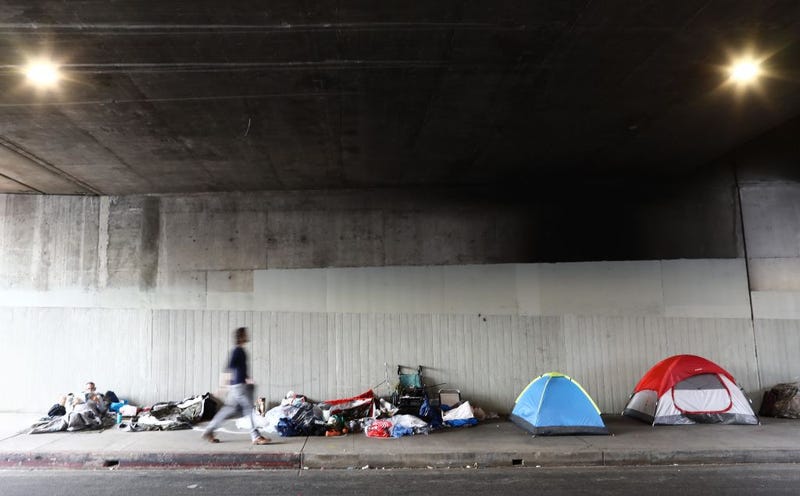
Los Angeles City Councilmember Joe Buscaino announced Friday that he will propose adding a measure to the June 2022 election ballot on whether the city should prohibit homeless persons from camping on the street if they have already been offered shelter.
The announcement came on the same day that a new ordinance amending L.A. Municipal Code Section 41.18 went into effect, which modifies the city's existing anti-camping law to prohibit sitting, sleeping, lying, storing personal property or obstructing the public right of way in certain areas.
Restrictions apply to manifold areas within the city, such as any spot that is within two feet of any fire hydrant, within five feet of any building entryway, within 10 feet of loading docks and driveways, or in any way that interferes with permitted city activities or restricts access protected by the Americans with Disabilities Act or anywhere physically within a street, including on bike paths.
Buscaino, who is also running to replace outgoing Mayor Eric Garcetti in 2022, said that his proposal would be more efficient than the ordinance amending 41.18, which entails a seven-step outreach process before any enforcement action can be taken.
Buscaino himself has described the ordinance amending 41.18 as “slow” and “bureaucratic,” and “will not achieve the end of street camping.”
The debate over enforcement prompted Garcetti's office to release a statement defending the ordinance amending 41.18.
"We don't need to choose between keeping our public spaces safe and clean, and connecting Angelenos experiencing homelessness with the services and housing they need," the statement said. "We can and will do both, as we respond to this crisis in a way that is compassionate and responsive to the urgent needs in our communities."
Buscaino’s office told KNX that residents of homeless encampments who refuse outreach and transitional housing offerings under the proposed ordinance would not be arrested. But the proposed change would expand the public right of way within 500 feet of “sensitive” facilities, like schools, day cares, parks and libraries. "Sensitive" facilities are already covered by 41.18. Buscaino's proposal would focus on widening the protected areas.
When asked what would happen to individuals who refuse programming offerings under Buscaino’s proposal, his office said “they would be asked to leave the city of L.A.,” but added that a specific enforcement mechanism had not yet been formulated.
Some of Buscaino's colleagues on the council are critical of the proposal's amped-up enforcement aims. "Enforcement alone, no matter how you dress it up, is never going to be sufficient to address this crisis," the City Council's Homelessness and Poverty Committee Chair Mark Ridley-Thomas said in a statement to The Los Angeles Times. "What's needed, and desperately so, is housing and services. And so my comment to Mr. Buscaino would be: Show me the housing, Joe. Show me the housing."
Buscaino’s office told KNX his proposal would prioritize redirecting persons experiencing homelessness into transitional housing and tiny home communities, like those constructed at L.A. Harbor College in Wilmington. As of Friday, Buscaino had not yet decided whether his proposal would call for additional funding for further development of tiny home communities in L.A., but said: “the money exists.”
“It’s more about getting neighborhoods to say ‘yes’,” his spokesperson said.
Buscaino is taking the next few weeks to “generate input” on what should be included in his proposed ordinance, his office said.
